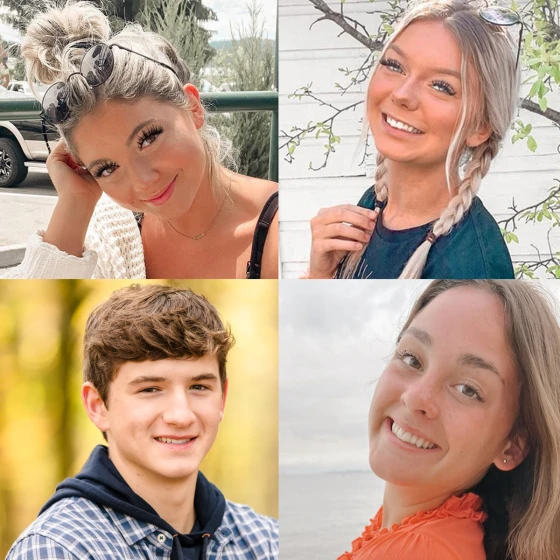The man accused of killing four University of Idaho students two years ago may be penalised with the death penalty if he is sentenced, the trial magistrate has judged.
At a hearing, this month in Boise, Idaho, the accused Bryan Kohberger’s defence team had tried to persuade District Court Judge Steven Hippler to block his trial, scheduled for August, from becoming a capital murder case.
He noted that the defendant must come new methods of execution but has failed to do which has led put the claim hanging.
It was explained that the alternative presented by the death penalty was to spend the rest of his life in prison which was the punishment for a first-degree murder. It was stated the suspect would need to spend 10 years in prison before he is eligible for parole.
According to the prosecutor, it was noted that there are four aggravating factors in the case against Kohberger, who turns 30 on Thursday, making the crime more severe and meriting the death penalty. It was stated that there were multiple victims; that the murders were especially egregious, cruel, or hostile; that the suspect exhibited utter disregard for human life; and that the suspect has a propensity to commit murder which will probably constitute a continuing threat to society,
The judge was accepted to send that the aggravating factor was big enough to send one of the suspects to life in prison or found 0ne factor that made the suspect eligible for a death sentence.
At the hearing, Idaho Deputy Attorney General Jeff Nye while speaking stood against the claims that were made by the defence counsel, the counsel had stated that the sentence was unconstitutional because he had claimed that the judgement would be dehumanizing to have the accused on death row for years if the stated have failed to provide a viable method to administer the execution.
Nye stated that one does not get to short-circuit the whole thing that death is off the table, Nye further added that it does not mean that decades from now there’s not going to be a method to put him to death. Idaho has not executed anyone since 2012 because it, like many other states, has had trouble procuring lethal injection drugs.
Nevertheless, Hippler stated at the hearing that the state did get the necessary drugs as it awaits to execute inmate Thomas Creech, who was convicted of five killings in three states and sentenced to death in 1983. His execution remains halted as he appeals after the state’s attempt to execute him in February was abandoned when prison staff members failed to establish an IV line in the death chamber.
An alternative method to destructive injection which is death by firing squad was signed into law last year, but a rebuilt chamber to allow for it has yet to be conducted.
Anne Taylor, Kohberger’s public defender, had also challenged the prosecution has stated that her client is eligible for a death sentence because he could be a threat to society by causing more danger in the future to society. She noted that the claim was vague because defendants are routinely accused of being dangerous.
Taylor stated that that can’t be true when one sits in court day after day after day and hears that about person after person after person, she further stated that this statute doesn’t do anything to help a jury determine who is the worst of the worst.
The reason for the killing of housemates Madison Mogen, 21, Kaylee Goncalves, 21, and Xana Kernodle, 20, and Kernodle’s boyfriend, Ethan Chapin, 20, in November 2022 remains unclear to the public who have continued to ask questions.
A motive remains unclear in the killings of housemates Madison Mogen, 21, Kaylee Goncalves, 21, and Xana Kernodle, 20, and Kernodle’s boyfriend, Ethan Chapin, 20, in November 2022.
Kohberger was a citizen of nearby Pullman, Washington, and then a doctoral student at Washington State University.
While a gag order has prevented many involved in the case from speaking publicly, the prosecution has stated it expects to make available at trial DNA proof, documents about Kohberger’s cellphone use and security videos to link him to the offence.
Kohberger’s defense has argued that he often went on late-night drives and that cellphone tower data would show that he was doing so miles away when the four students were killed.
In one of the cases made in court this month, the defense has asked the court to make the evidence irrelevant at the trial. the evidence according to the defence included the DNA sample it was explained that they believed that the evidence was not obtained through a law enforcement and violated his constitutional rights.
The trial has been moved to Boise from Latah County after the defense successfully claimed there would be a strong chance of discrimination among potential jurors and that the community does not have the resources for such highly anticipated proceedings.
Steve Goncalves, Kaylee Goncalves’ father, advocated for moving the trial and told NBC News before the judge’s death penalty determination that he wanted to see Kohberger locked away and no longer influencing society.
He stated that Kaylee was a “very loving girl” whose spirit had been skipped.




